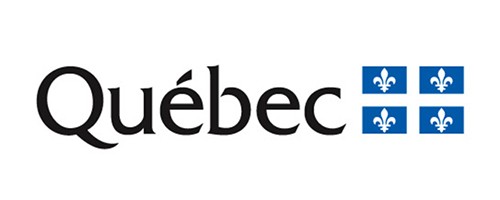See the original article (french only) : Radio-Canada
100 million, 20 projects
The $100 million will be used to start up some 20 projects over the next five years. The lion's share of the reductions will be achieved by the tramway project and the future biomethanation plant. Together, they represent an estimated 50,000 tonnes of GHG reductions per year, or 12% of the total reduction target.
“We are undertaking a major shift. Never before has the City of Québec gone so far in its existence. Sustainable development is the most promising and fairest approach to meeting the challenges of our time,” says Québec City Mayor Régis Labeaume.
Other projects include the development of 200 new user-friendly streets, the greening of neighbourhoods, the development of eco-neighbourhoods, increased densification, the enhancement of rivers through water quality remediation and the development of the Parc des Grandes-Rivières, the densification of neighbourhoods and increase of the urban forest.
“I have progressed”
With this plan, the mayor admits to having progressed in his view of the battle against climate change. In 2015, Régis Labeaume criticized the opposition for asking for reductions that were too ambitious and overly long term.
He also called targets based on a collective effort a mistake. Régis Labeaume said that he was banking only on what the city could control.
“Do you know why it didn't work? Because it's hard to tell. We decided that we would calculate the reduction of greenhouse gases on our equipment, our activities, and that, we have control over it,” Régis Labeaume said in 2015.
Different approach
However, the current approach is quite different. The municipal administration claims to be ambitious and wants to reduce all GHGs emitted on its territory.
Régis Labeaume is now convinced, because the objectives are modelled on those of the UN, objectives that are measurable, concrete and that also take into account aspects such as global health.
“Yes, I have progressed, fortunately. I have progressed with the knowledge I have developed in my job. Sustainable development is more than planting trees. It's a societal project and that's what makes me happy. I know why we can reach the targets,” Régis Labeaume says.
Collective effort
The city also relies on the initiatives of governments, businesses and citizens to achieve its goals.
“The city cannot do it alone. This is a collective project where citizen participation is absolutely essential. I will personally invite all corporate citizens of Québec City to participate," Régis Labeaume says today.
The mayor also stressed that future development projects presented in Québec City will have to meet the objectives of the GHG reduction plan.
Ambitious target
The objective of reducing GHGs by 45% by 2030 is ambitious. Between 2010 and 2017, the reduction in GHGs on the Québec City territory was 0.6%.
“Waste of time”
The leader of Démocratie Québec, Jean Rousseau, noted the change of direction of the City of Québec on GHGs.
In 2015, the Mayor ridiculed the idea put forward by Démocratie Québec that a collective effort—city and community—was needed to reduce greenhouse gases. “On March 28, 2019, I had submitted a notice of motion to the City Council to include the community in the efforts to reduce GHGs. Once again, this proposal had been rejected,” Mr. Rousseau recalls in a press release.
“Today we learn that the City is doing a 180-degree turn on the community's role in reducing GHGs. What a waste of time and energy to get there,” he says.



